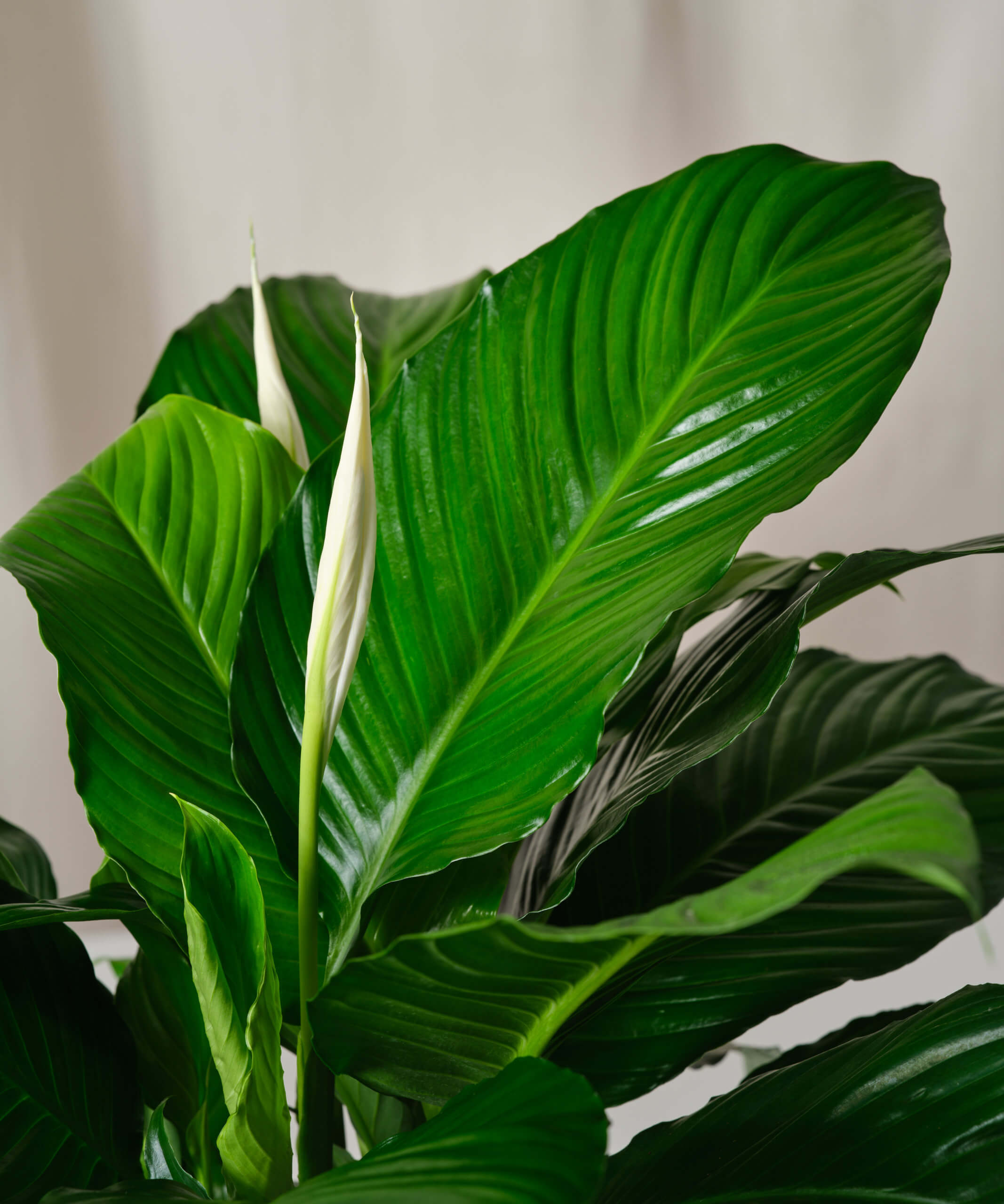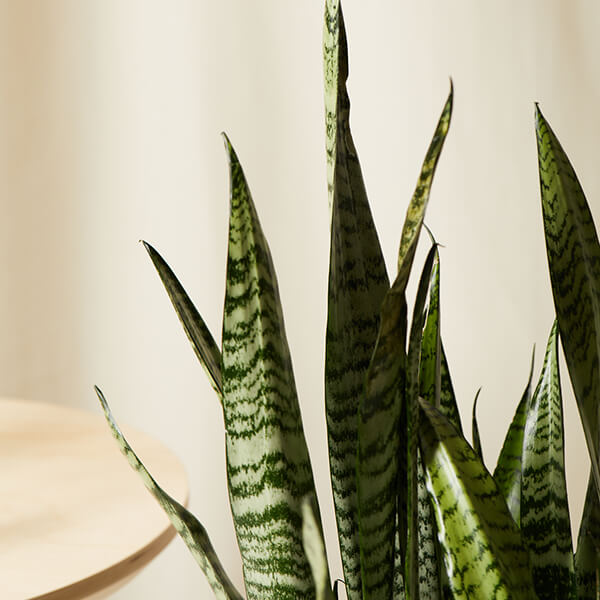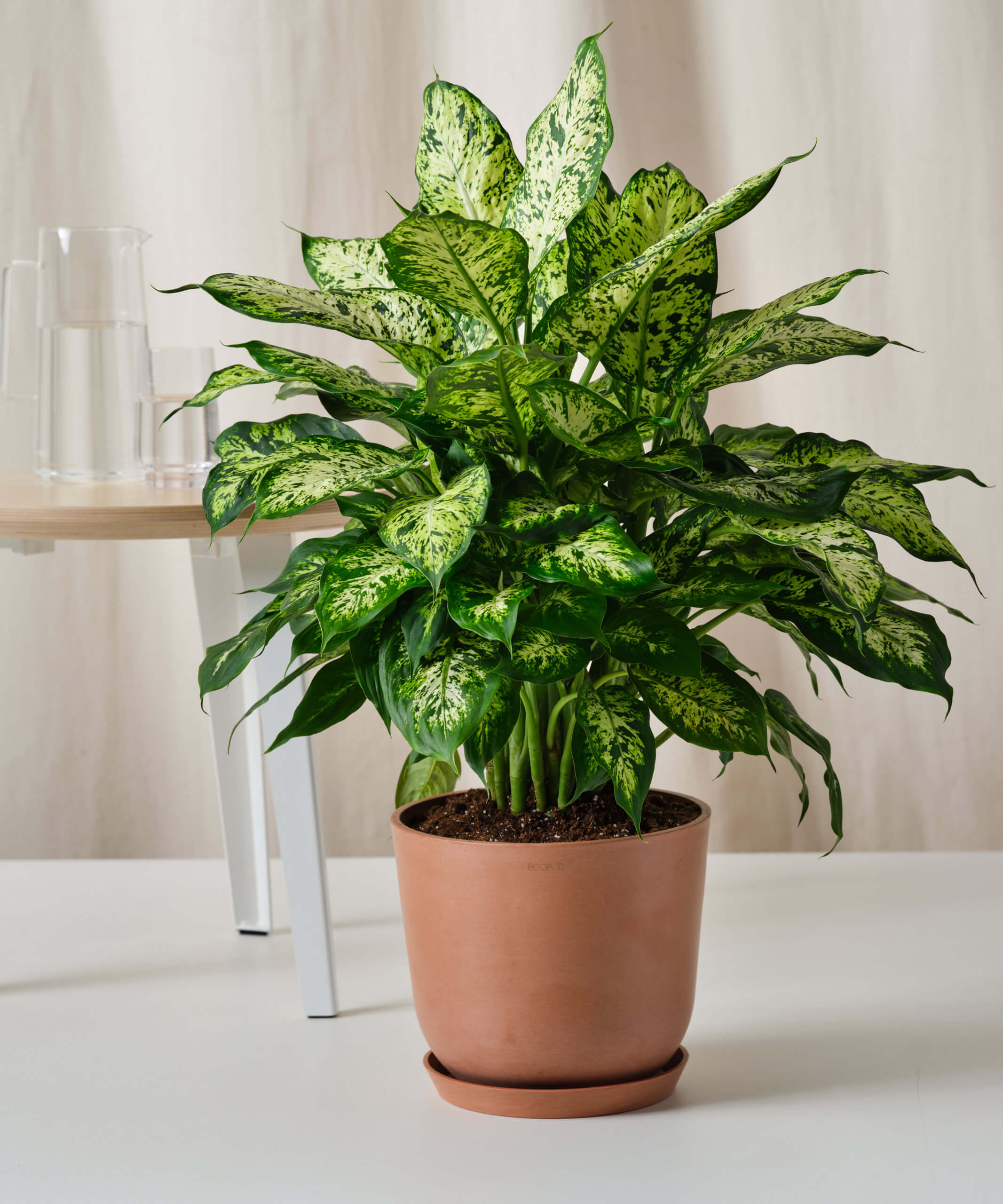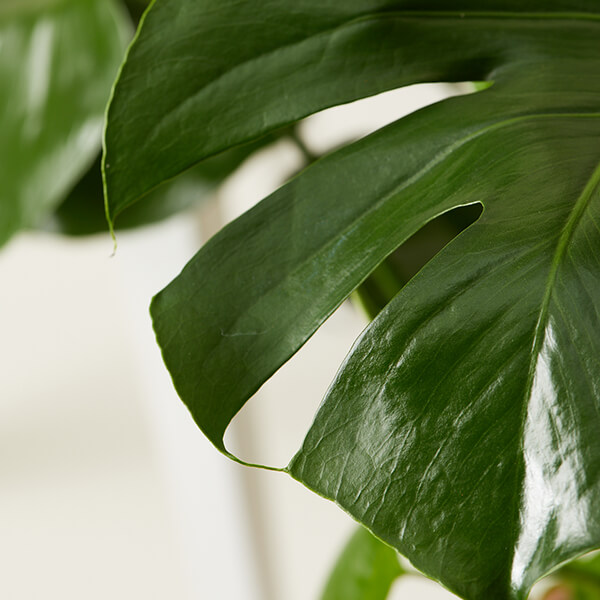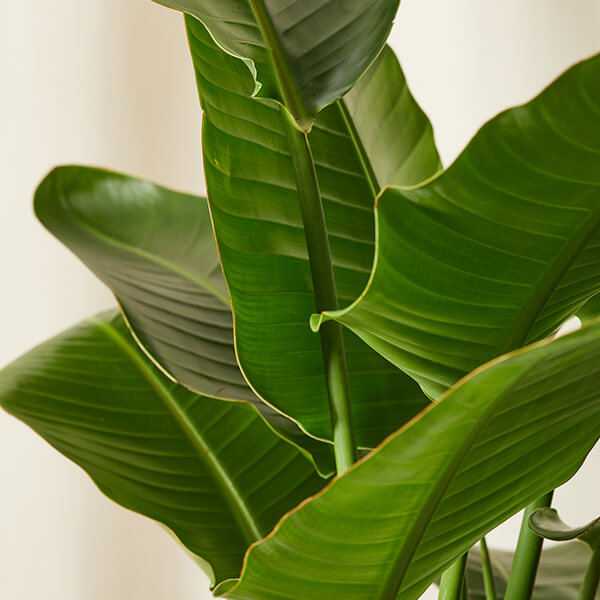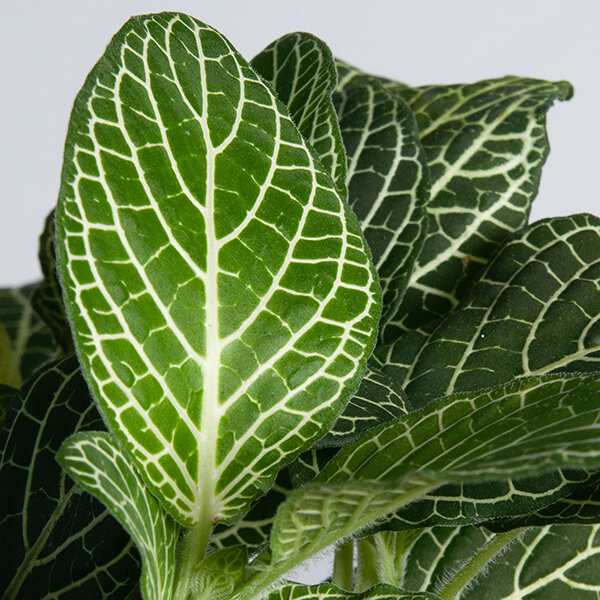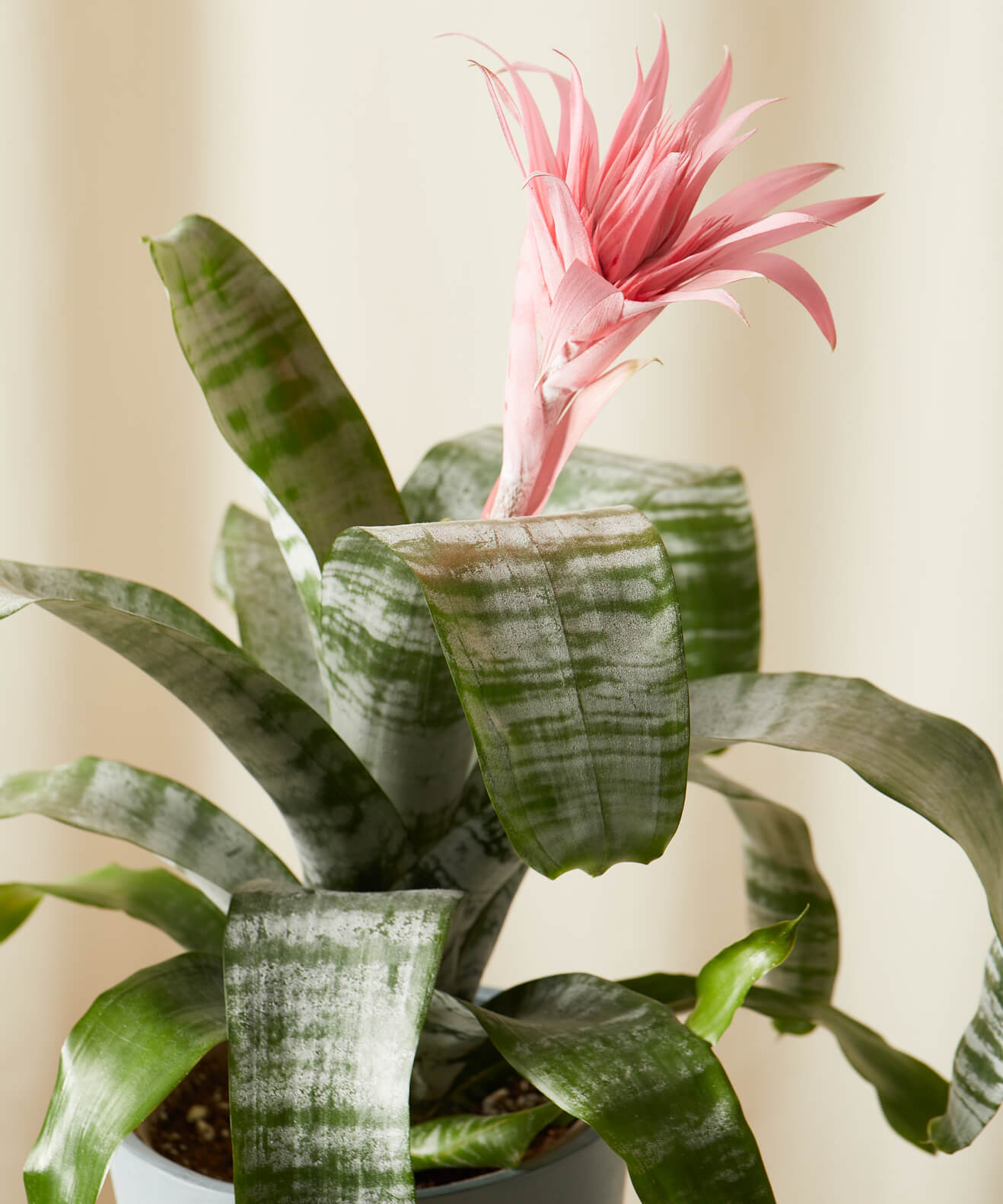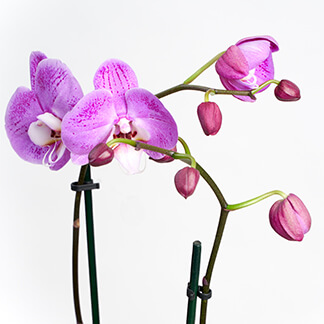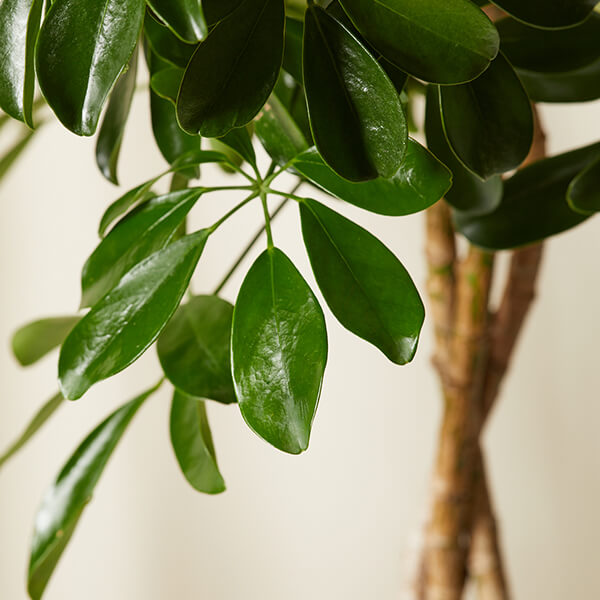Search
119 results found with an empty search
- Peace Lily | Plantastic
< Back Peace Lily Light: Your peace lily will do best in bright indirect light and can adapt to lower light. Too much bright light will burn the foliage. Too little light and the plant will not produce flowers and foliage growth will slow. Water: Water when 50% of the soil volume is dry. If the plant gets too dry it will dramatically wilt, but a good watering should perk it back up. Water thoroughly until you see it flow out of the drainage and discard excess water in the saucer. Pet-Safe: Peace Lily is considered to be toxic to animals and humans if ingested. Previous Next
- Sansevieria | Plantastic
< Back Sansevieria Light: Your Snake Plant can tolerate any light level. The brighter the light, the faster it will grow. Always acclimate the plant over a few weeks if moving from indirect to direct light to avoid scorching the foliage. Water: Water only when the soil volume is 100% dry. It’s better to err on the dry side. Water thoroughly to encourage a healthy root system and discard any excess water in the saucer. Pet-Safe: Snake Plants are toxic to humans and pets if ingested. Previous Next
- Dieffenbachia | Plantastic
< Back Dieffenbachia Light: Your Dieffenbachia will do best in bright, indirect light. It can also tolerate lower light environments, though growth will slow. Avoid direct sunlight which can burn the leaves. Water: Water your Dieffenbachia when the soil volume is 50-75% dry. Water thoroughly until it drips out the bottom of the pot, and remove excess water that accumulates in the saucer. Pet-Safe: Dieffenbachia are considered to be toxic to pets and humans if ingested. Previous Next
- Monstera | Plantastic
< Back Monstera Light: Your Monstera can grow just about anywhere in your home! It tolerates low light, but grows faster and becomes more dramatic in a spot with indirect bright light. That said, avoid strong, direct sunlight because it may burn the leaves. If you don’t have a location with ideal lighting for your Monstera, use a Grow Light. Water: Water your Monstera when the top 50–75% of the soil is dry. Water until liquid flows through the drainage hole at the bottom of the pot and discard any water that has accumulated in the saucer. Pet-Safe: Monstera leaves are mildly toxic to pets and humans. Typically, ingestion will cause mouth and stomach irritation and possible vomiting. Previous Next
- Bird of Paradise | Plantastic
< Back Bird of Paradise Light: The Bird of Paradise can handle direct and bright indirect light. However, it will flourish most in a sunny spot in direct sun. If you don’t think you have a spot with enough light, try using a grow light. Water: Water your Bird of Paradise when the soil volume is 50% dry. Water until liquid flows through the drainage hole at the bottom of the pot and discard any water that has accumulated in the saucer. Pet-Safe: Bird of Paradise is considered toxic to humans and pets if ingested. Previous Next
- Fittonia | Plantastic
< Back Fittonia Light: Your Fittonia prefers bright, indirect light. Lower light can cause it to lose some of its vibrant color and growth will slow. Too much light can burn the leaves. Water: Your Fittonia loves water and to be consistently moist, but not soggy. Water thoroughly when the top 50% of soil is dry. If you let your Fittonia dry out too much, it will let you know with limp leaves. Not to worry! After a thorough watering, the leaves should soon perk up. Pet-Safe: Fittonia are non-toxic and pet-friendly. Previous Next
- Bromeliad | Plantastic
< Back Bromeliad Light: Your Bromeliad prefers indirect bright light like from a sunny eastern window. Too little light and the plant will not produce new pups and flowers, but too much light will burn the leaves. Water: Bromeliads are unique in that you water the center of the plant instead of the soil. Keep the center of the plant filled with water at all times – up to halfway. Every few weeks, empty any water, rinse and fill with fresh water. This helps prevent salt and mineral buildup. Only water the soil when it is 100% dry. When watering the soil, water until liquid flows through the drainage hole at the bottom of the pot and discard any water that has accumulated in the saucer. Pet-Safe: Your Bromeliad is non-toxic and pet friendly. The leaves can cause contact dermatitis in some individuals, so consider wearing gloves when handling the plant. Previous Next
- Orchid | Plantastic
< Back Orchid Light: Your orchid prefers bright indirect light, such as the light from an east-facing window. Don’t let your plant sit in direct sun, as the foliage and delicate flowers may scorch. If your orchid does not get enough light, it will likely not rebloom. Water: Water when 75% of the potting media volume is dry. Water thoroughly until it flows from the drainage hole. Discard any excess water to discourage root rot. Pet-Safe: Phalaenopsis orchids are non-toxic to pets and humans if ingested. Previous Next
- Monstera | Plantastic
< Back Monstera Light: Your Monstera can grow just about anywhere in your home! It tolerates low light, but grows faster and becomes more dramatic in a spot with indirect bright light. That said, avoid strong, direct sunlight because it may burn the leaves. If you don�’t have a location with ideal lighting for your Monstera, use a Grow Light. Water: Water your Monstera when the top 50–75% of the soil is dry. Water until liquid flows through the drainage hole at the bottom of the pot and discard any water that has accumulated in the saucer. Pet-Safe: Monstera leaves are mildly toxic to pets and humans. Typically, ingestion will cause mouth and stomach irritation and possible vomiting. Previous Next
- Schefflera | Plantastic
< Back Schefflera Light: Your Schefflera prefers bright indirect light. It can also tolerate medium and low light, but growth will slow. Direct sun in the early morning and late afternoon is fine, but avoid exposure to the harsh midday sun which can scorch the leaves. Water: Water when 75% of the soil volume is dry. Water slowly, allowing it to soak into the soil, until it flows freely through the drainage hole. Discard any excess water that accumulates in the saucer. Pet-Safe: This plant is considered toxic to pets and humans if ingested. Previous Next
